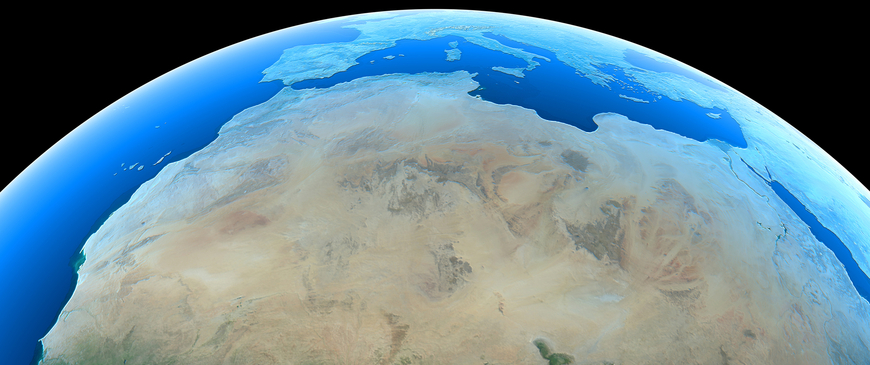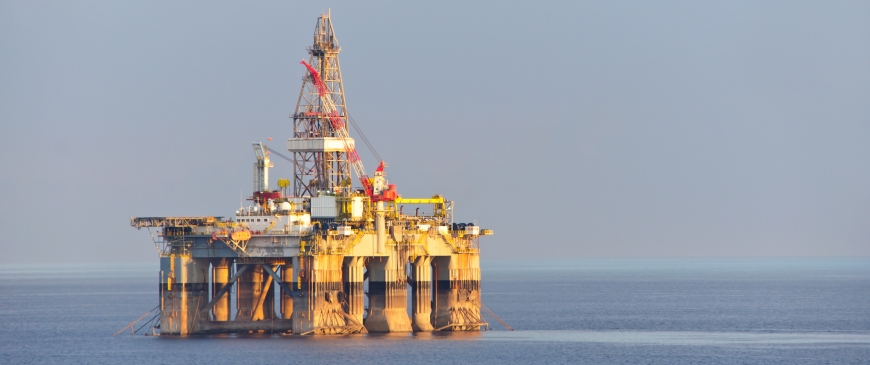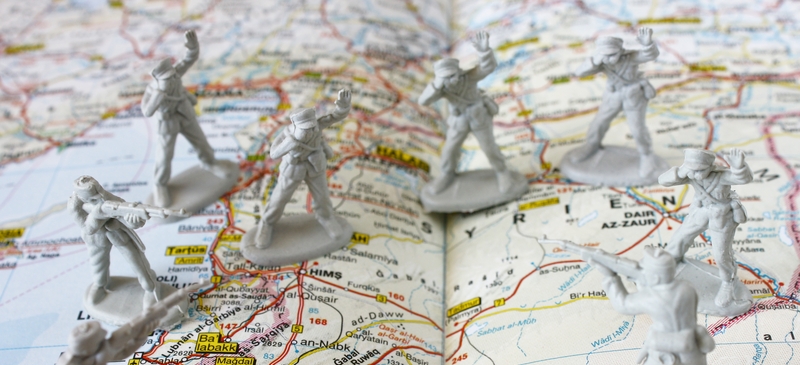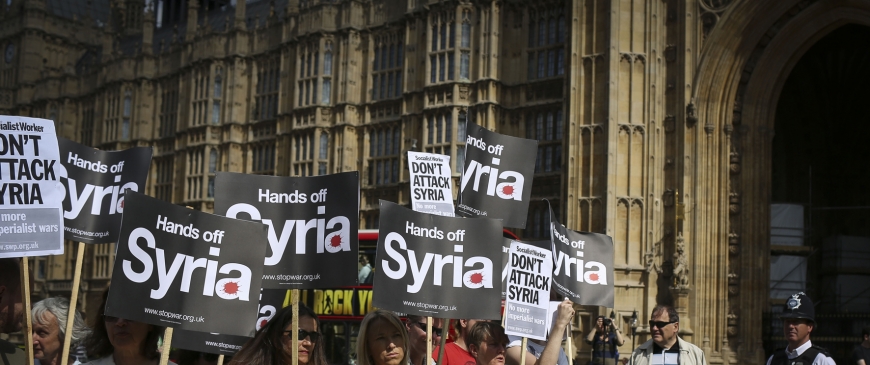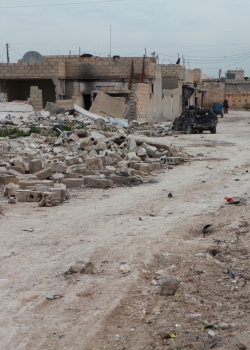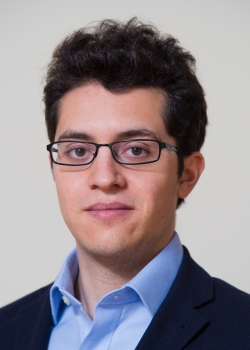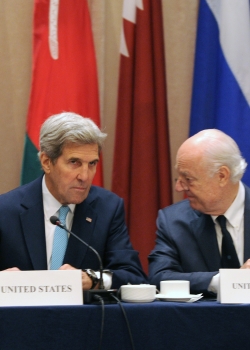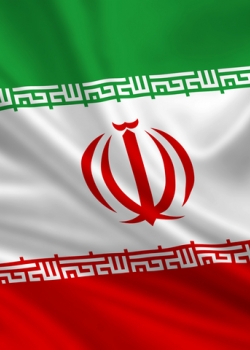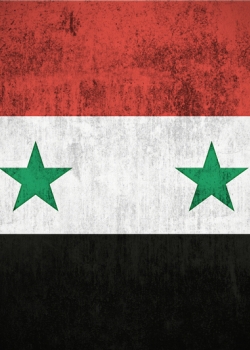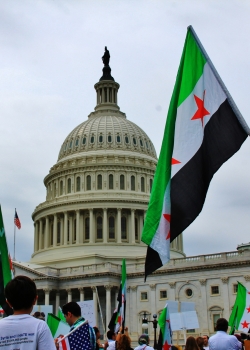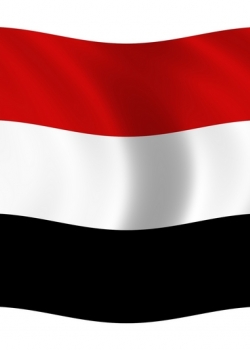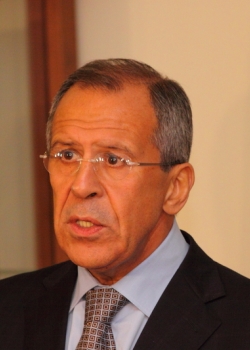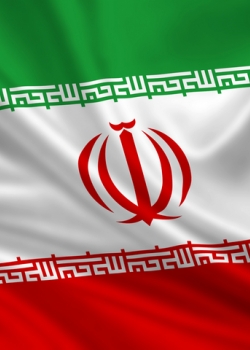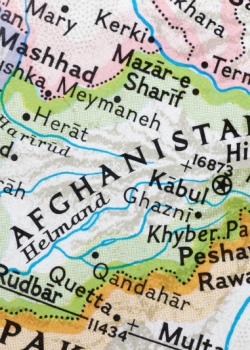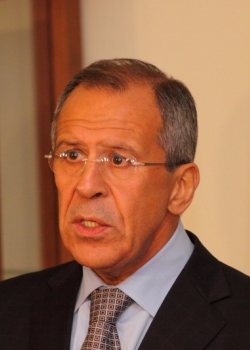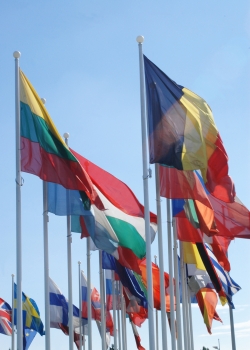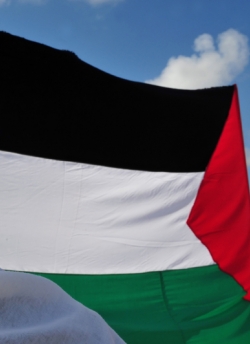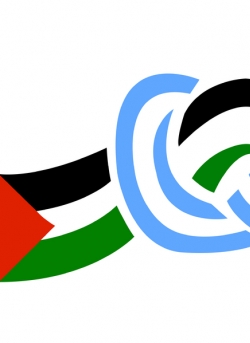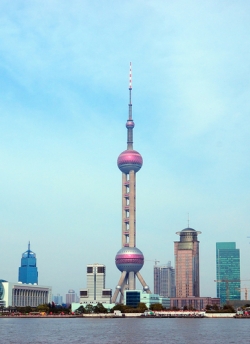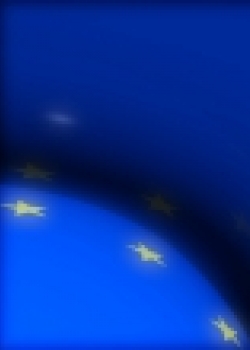The Middle East & North Africa
Waiting for Putin and Assad to run out of people to kill. Is that our plan?
25 February 2018
The Observer
It has been a quieter than average week in Syria. More than 400 people were killed in the unimaginably awful siege of eastern Ghouta, most of them civilians.
Voice of America: EU-Tripoli Migrant Deal Ignores Political Chaos in Libya, Analysts Warn
04 February 2017
Luigi Scazzieri talks to Voice of America about the EU's migrant deal with Libya.
Judy Asks: Should the West impose more sanctions on Russia?
19 October 2016
Carnegie Europe
The statement on Syria by the EU’s Foreign Affairs Council on October 17 was full of strong rhetoric and empty of substance.
Iran nuclear deal: After the nuclear deal, Iran is our "frenemy"
17 July 2015
City A.M
Tuesday’s agreement on Iran’s nuclear programme is a momentous achievement, but only if it can be enforced and verified. Following the diplomatic deal in Vienna, Western governments should engage with Tehran, but also help to contain Iran’s growing influence in the region.
While Tehran celebrates the upcoming removal of international sanctions,...
While Tehran celebrates the upcoming removal of international sanctions,...
Will Assad deliver for Putin?
18 September 2013
Carnegie Europe
Following a Russian initiative, Moscow and Washington have reached an agreement that calls for Syria’s arsenal of chemical weapons to be removed or destroyed by mid-2014.
Obama w pułapce - Interview with Ian Bond
01 September 2013
Rzeczpospolita
Niepokoi mnie, że na Zachodzie wszyscy koncentrują się na tym, jak przeprowadzić atak na Syrię. Znacznie mniej jest dyskusji o tym, w jaki sposób może na to odpowiedzieć Asad – podkreśla brytyjski ekspert ds. międzynarodowych w rozmowie z Jędrzejem Bieleckim.
'One blood and one destiny?' Yemen's relations with the Gulf Co-operation Council
20 June 2012
London School of Economics & Political Science
For years Yemen has been the poor, neglected relation of the Gulf Cooperation Council (GCC). Long-promised aid commitments from the GCC have not materialized because of concerns over Yemeni absorption capacity.
Let Russia show the way on Syria
11 June 2012
The New York Times
Like him or loathe him over his stance on Syria, Russia’s foreign minister, Sergey Lavrov, is a better diplomat than most. Experience counts, and Lavrov has spent almost three decades at the United Nations. As a former senior Soviet diplomat and Russia’s permanent representative to the Security Council in the...
Why closing the Irish embassy in Tehran is a mistake
24 April 2012
Politico
The recent furore over the closure of closure of the Irish Embassy to the Vatican drowned out any discussion over the withdrawal of other embassies, including that in Tehran last month. Almost unnoticed, Iran has been lumped in with Timor Leste as one of two other Irish diplomatic missions that...
The power balance in Afghanistan
09 March 2012
The Times
Letter to the editor (The Times)Sir, You say that the situation in Afghanistan is "not chaos" [see leading article 8 March 2012]. This assertion does not ring true.
Le veto russe sur la Syrie n’est pas injustifié
28 February 2012
Le Temps
Sans doute Moscou fait-il de la realpolitik en s’opposant à un projet de résolution du Conseil de sécurité exigeant le départ de Bachar el-Assad. Toutefois, la diplomatie russe a raison de penser qu’un tel texte serait intenable. Avec le régime syrien, les Etats occidentaux ont tout fait de travers, estime...
EU foreign policy must not become a casualty of the euro crisis
16 December 2011
EU Observer
Dear EU leaders,
We are seriously concerned about the impact that the current eurozone debt crisis is having on the external relations of the Union.
The first casualty is the time available for foreign policy. We recognise and support your efforts to overcome the current crisis but it is...
We are seriously concerned about the impact that the current eurozone debt crisis is having on the external relations of the Union.
The first casualty is the time available for foreign policy. We recognise and support your efforts to overcome the current crisis but it is...
The EU needs to woo Israel if it’s to be a peacemaker
01 April 2011
Europe's world
Sharon Pardo highlights a number of important ways in which the EU can support the Middle East peace process, not least by encouraging internal Palestinian reconciliation. But if the EU wants to play a larger role in the peace process it also needs to improve its image in Israel.
...
...
'West Bank first' approach has failed
04 February 2010
European Voice
The EU must convince the US to abandon a policy whose flawed logic condemns it to failure.
Israel's dark view of the world
13 November 2009
The Guardian
The official explained to Bibi Netanyahu that if there was a peace settlement, extra investment would push Israel's longterm growth rate from 5% a year to 7%. The Israeli prime minister responded that if the country had 5% growth, it did not need peace.
Netanyahu was joking, according to the official...
Netanyahu was joking, according to the official...
Can the EU deal with its unruly neighbours?
21 December 2006
European Voice
What future security and defence challenges should the EU prepare for?Europe should be worried about the spread of weapons-of-mass-destruction (WMD), failing states and terrorism. In fact it already is.
The great firewall of China will fall
26 January 2006
The Daily Telegraph
Google, the popular search engine that floated on the stock market last year, has not abandoned its corporate motto: "Don't be evil".
Turkey offers EU more punch
01 September 2005
European Voice
Rather than undermine the EU's Common Foreign and Security Policy, Turkish membership of the Union could boost the bloc's power in trouble spots across the Middle East and Central Asia, argues Charles Grant.
Opponents of Turkish accession to the EU often claim that it would damage the cohesiveness of the EU's...
Opponents of Turkish accession to the EU often claim that it would damage the cohesiveness of the EU's...
The US heads home: Will Europe regret it?
26 June 2004
Financial Times
The burning of Bush The US president was once known for his ability to unite factions but, with his foreign policy in tatters around him, he is dubbed the Great Polariser. What went wrong for George W. Bush and his advisers?
Mighty Europe
05 February 2004
The Wall Street Journal
London, Paris and Berlin are working hard to put the past behind them. After a year that began with bitter rancor over Iraq and ended with the collapse of negotiations over the European constitution, the desire of pro-Europeans to face the future is understandable.
Beneath the rows and gesture politics, Europe's...
Beneath the rows and gesture politics, Europe's...

